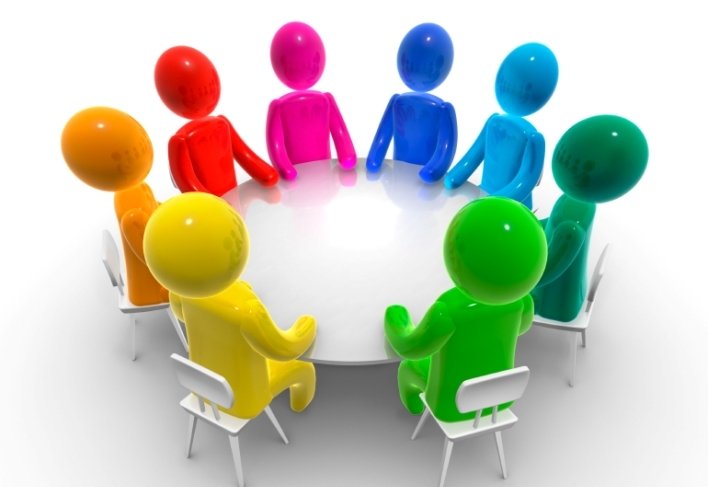 Hi Everyone,
Hi Everyone,
I came across a Presidents Committee in the US for people with Intellectual Disabilities and they advise the White House; one of the people on it was Lauren Potter from the States.
I think the citizens and government should work in conjunction with self-advocates to put this in place. Nothing about Us without Us. Right now as British Columbians only have CLBC and the CLBC Community Councils. If we had an Advisory Committee it could work across government and help advise the government on all matters of public concern; such as my case about better training for police and nurses that interact with people with developmental disabilities in B.C.
We can also help to support the government on our issues as they don’t know our issues as they don’t have the same experiences as we do. Our hospitals need to have better accessibility for people with developmental disabilities and better accessibility in the justice system this would be one issue the committee could deal with.
Our self-advocacy movement in B.C. and in Canada needs to become stronger and well known by advising the government on matters of public concern that affects people with diverse abilities. I think this idea of an Advisory Committee would be a great help to the Premier of B.C. or the Prime Minister of Canada.
Our justice system and hospitals need to be fixed. I think this Advisory Committee could produce a report on recommendations and on things that need to be improved, and help government with their decision making. We need a committee that will support the self-advocacy network and the self-advocacy groups across B.C. or Canada.
This committee would be different from the normal cabinet committees. In Kamloops, we have a Mayor’s Advisory Committee for persons with disabilities but nothing for B.C. or Canada. This needs to change; we need a better network to support self-advocates and the work they do every day for us. This Advisory Committee could also work with Inclusion B.C. to work on local matters of concern and parents, caregivers, professionals for the education system and self-advocates would be better able to give input to the committee.
By Krystian Shaw
This is the original link to the US website:
http://www.acl.gov/Programs/AIDD/Programs/PCPID/index.aspx
Some other useful links that I found – worth looking at:
https://www.youtube.com/watch?v=zrSjL1f1LFE
Envisioning the Future: Allies in Self-Advocacy
The Administration on Intellectual and Developmental Disabilities (AIDD)
is the federal agency that supports the developmental disabilities network.
The network includes Developmental Disabilities Councils (DD Councils),
University Centers for Excellence in Developmental Disabilities (UCEDDs),
and Protection and Advocacy systems (P&As).
AIDD held nine regional summits in 2011 and 2012. The goals of the
summits were to:
1. Find out what is happening in the states on self-advocacy
2. Make state team plans to strengthen self-advocacy
3. Make national recommendations to strengthen self-advocacy
Administration on Intellectual and Developmental Disabilities (AIDD)
State Councils on Developmental Disabilities
Fact Sheet (PDF, 338KB) | DDC Program Contacts | Program Resources
State Councils on Developmental Disabilities (Councils) are federally funded, self-governing organizations charged with identifying the most pressing needs of people with developmental disabilities in their state or territory. Councils are committed to advancing public policy and systems change that help these individuals gain more control over their lives.
The 56 Councils across the United States and its territories work to address identified needs by conducting advocacy, systems change, and capacity building efforts that promote self-determination, integration, and inclusion. Key activities include conducting outreach, providing training and technical assistance, removing barriers, developing coalitions, encouraging citizen participation, and keeping policymakers informed about disability issues.
Diverse Council Membership
Council members are appointed by a state’s governor; by law, more than 60 percent of a Council’s membership must consist of individuals with developmental disabilities or their family members. Advocates and state agency representatives also serve as members. This diversity enables Councils to better analyze and improve systems and services within a state and ensure that the voices of people with developmental disabilities and their families are heard.
Empowerment through Self-Advocacy
Councils focus on empowering individuals through activities that teach self-advocacy skills and support self-determination. By empowering individuals and their families to both advocate for themselves and seek long-term solutions through systems change, Councils are creating an environment of self-sufficiency, self-determination, inclusion, and acceptance. Councils also play a critical role in quality assurance and as innovators in the development of person-centered systems.
State-Level Planning and Goal Implementation
To serve their communities, Councils design 5-year state plans that address new ways of improving service delivery. To implement the state plans, Councils work with different groups in many ways, including educating communities to welcome people with developmental disabilities, funding projects to show new ways that people with disabilities can work, play, and learn, and seeking information from the public and from state and national sources.










